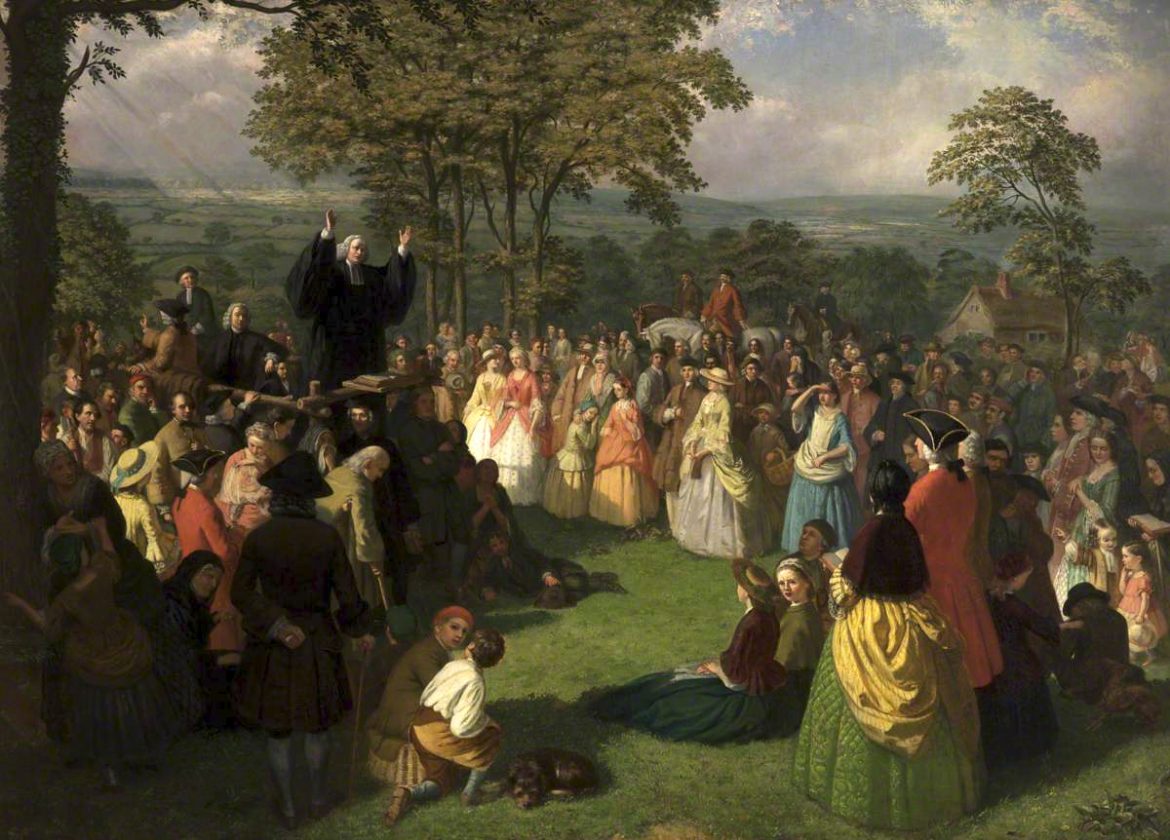 If you are a fan of the television quiz show “Jeopardy,” a fellow Bible wonk, or just a person of faith on social media, chances are that you are aware of the recent flap over a “Final Jeopardy” answer in the recent Tournament of Champions.
If you are a fan of the television quiz show “Jeopardy,” a fellow Bible wonk, or just a person of faith on social media, chances are that you are aware of the recent flap over a “Final Jeopardy” answer in the recent Tournament of Champions.
Heading into Final Jeopardy!, Professors’ Tournament winner [Sam] Buttrey led with $14,800, with He at $13,200, and super-champ Amy Schneider trailing with $2,400. The final clue under the category “The New Testament” read: “Paul’s letter to them is the New Testament epistle with the most Old Testament quotations.”
Schneider’s answer, “Who are The Hebrews,” was deemed correct by host Ken Jennings, while Buttrey’s “Who are The Romans” was considered incorrect. Meanwhile, He answered incorrectly with “Philippiaes,” but after Buttrey’s wager, he ended up with enough earnings to win the episode.
Some fans were not happy with this outcome, as there is much debate over who wrote the biblical texts, including parts of The New Testament. As noted on the Jeopardy Fan website, there are “conflicting sources as to whether Romans or Hebrews contains more quotations. Secondly, there’s the more pressing question of authorship—specifically of Hebrews. There’s no dispute that Paul wrote Romans.”
To say that there “is much debate over who wrote the biblical texts” is true, but not really relevant to the authorship of Hebrews. Our New Testament contains thirteen letters attributed to Paul in the Greek text: Romans, 1 and 2 Corinthians, Galatians, Ephesians, Philippians, Colossians, 1 and 2 Thessalonians, 1 and 2 Timothy, Titus and Philemon. Indeed, the first word in all of these books is “Paul”! But Hebrews is not one of them. That book is anonymous: Hebrews never claims Pauline authorship, and indeed does not even sound like Paul.
The authorship of Hebrews was debated even in antiquity: Origen (185-254 CE) famously wrote, “God alone knows who wrote Hebrews.” Still, in the King James Version, this book is titled, “The Epistle of Paul the Apostle to the Hebrews”–a double error (carelessly repeated by the editors of the “Jeopardy” team as well). Even the Evangelical NIV does not follow the KJV here, but titles the book simply as “Hebrews.” Hebrews not only is not by Paul, but also is not an epistle: the book only superficially resembles a letter in its close, where it also mentions Paul’s friend Timothy (Heb 13:23-25). Rather, Hebrews is a sermon on selected Old Testament passages: the book contains 32 citations from the Hebrew Bible, including ten from the Psalms, particularly Psalm 110. Accordingly, Hebrews refers to itself (Heb 13:22) as logou tes parakleseos: a “word of exhortation” (NRSV) or “message of encouragement” (CEB).

By the fourth century, Christian teachers such as Jerome and Augustine were ascribing this book to Paul–hence, the title in the KJV. Quite probably, Hebrews came to be attributed to Paul in the tradition because of that epistle-like conclusion mentioning Timothy, because it was anonymous, and because, without it, there would be thirteen letters of Paul–an inauspicious and unfortunate number! Of those thirteen, Paul’s authorship of Romans, the bulk of 1 Corinthians (1 Corinthians 14:33b-36 is almost certainly a later expansion, as it conflicts with Paul’s statements about women elsewhere, even in this same book [see 1 Corinthians 11:2-16 ]), 2 Corinthians, Galatians, Philippians, 1 Thessalonians, and Philemon is unquestioned. But since in the ancient world, writing in the name of a well-known and respected teacher was common (Plato’s Dialogues, attributed by him to his teacher Socrates, are a famous non-biblical example), it is no surprise to find examples of this phenomenon in the New Testament as well.
Those letters attributed to, but likely not written by, Paul are called Deuteropauline Epistles. Very few scholars accept Paul’s authorship of 1 and 2 Timothy or Titus (letters very similar in style to one another but unlike Paul’s certainly authentic writings, commonly called, collectively, the Pastoral Epistles), or of 2 Thessalonians (although I believe that Paul may have written this one!) Paul’s authorship of Colossians and Ephesians can be, and is, debated, although most scholars hold that they are different enough from Paul’s theology, vocabulary and style elsewhere that Paul likely did not write them.
The authorship of Hebrews, however, and its identification as a letter are (the unsupported claims of Augustine and Jerome not withstanding) non-controversial: despite the title page of this book in the KJV, Hebrews is not an epistle, and was not written by Paul. This time, clearly, “Jeopardy” got it wrong.
But–does this matter? Clearly it matters to Mr. Buttrey, as it was the difference between winning and losing the match. It also ought to matter to the producers and researchers on “Jeopardy,” if they care about the integrity of their quiz program. Whoever was responsible for this gaffe simply dropped the ball–a modicum of research would have told them that the answer was, at best, badly worded. But whether Paul wrote Hebrews or not, it is part of the Christian canon. Recognizing that Hebrews does not claim to be by Paul, or that it is not in fact an “epistle,” has nothing to do with the status of this book as Scripture.
Indeed, I am persuaded that Hebrews may be particularly relevant to our contemporary American church. Consider the clues this book offers as to its context and audience. Hebrews is written in excellent Greek–indeed the best Greek in the New Testament! That suggests not only an educated author, but a highly cultured, well educated audience. The community is well off: although they have known robbery (Hebrews 10:34), they are still able to help others in trouble, and do so.

In the past, this community had seen signs and wonders–their conversion had been marvelous (Hebrews 2:4)! But those glory days are long past. Now, the preacher of this extended sermon declares, they have grown complacent and content. They are dull of hearing. Although they ought to be teachers themselves, they instead need instruction in the very basics of the gospel (Hebrews 5:11-14).
Some in this community have experienced conflict and trouble because of their faith (Hebrews 10:32-34), but they have not known real, bloody persecution (Hebrews 12:4). Yet, despite their privileged position, the community is weak, ineffectual (Hebrews 12:12). Their problem is not persecution, or even sin, but indifference: indeed, some no longer even gather for worship (Hebrews 10:23-25)!

Doubtless, this is the reason for the preacher’s terrifyingly harsh words in Hebrews 6:4-8 and 10:26-31. Reading those passages as a young believer, I became for a terrible few days convinced that I was damned–for I knew full well that I had sinned since I believed, and Hebrews 10:26 plainly states, “If we make the decision to sin after we receive the knowledge of the truth, there isn’t a sacrifice for sins left any longer.” It took me awhile to realize that these passages are not the entire Bible, and to hear the assurance of forgiveness in other texts, notably 1 John 1:8-9
If we claim, “We don’t have any sin,” we deceive ourselves and the truth is not in us. But if we confess our sins, he is faithful and just to forgive us our sins and cleanse us from everything we’ve done wrong.
The author of Hebrews was railing at this community, trying desperately to break through their comfortable, casual Christianity and rouse them again to passionate faith. Does this sound familiar, friends? I am convinced that we twenty-first century American Christians in particular may find challenge and power in these ancient words!
So far as its status as Scripture goes, it does not matter who wrote Hebrews. But for students of the Bible who want to dig deeper, to understand the message and meaning of Scripture, it does matter that we pay close attention to what the texts of Scripture actually say. Hebrews does not claim Pauline authorship for itself. If we try to shoehorn this book into Paul’s writings, we may be misled. For example, there is no mention of justification by grace through faith in Hebrews. Its absence may prompt us to downplay the importance of this teaching in Paul’s writings (for example, Romans 5:1-10). The author of Hebrews, evidently addressing a committed Jewish Christian audience, draws heavily on the imagery of priesthood and sacrifice (and particularly, of Jesus as both king and high priest “according to the order of Melchizedek;” Hebrews 7:17; Psalm 110:4). Paul uses sacrificial imagery in very different ways. It would be a mistake to try collapse these two understandings of the cross of Christ into one another.
As Origen observed nearly 1800 years ago, we do not know who wrote Hebrews. We may never know. That does not in any way devalue the message and power of this book. However, pretending that we know more than we do cannot possibly help us understand this book any better.